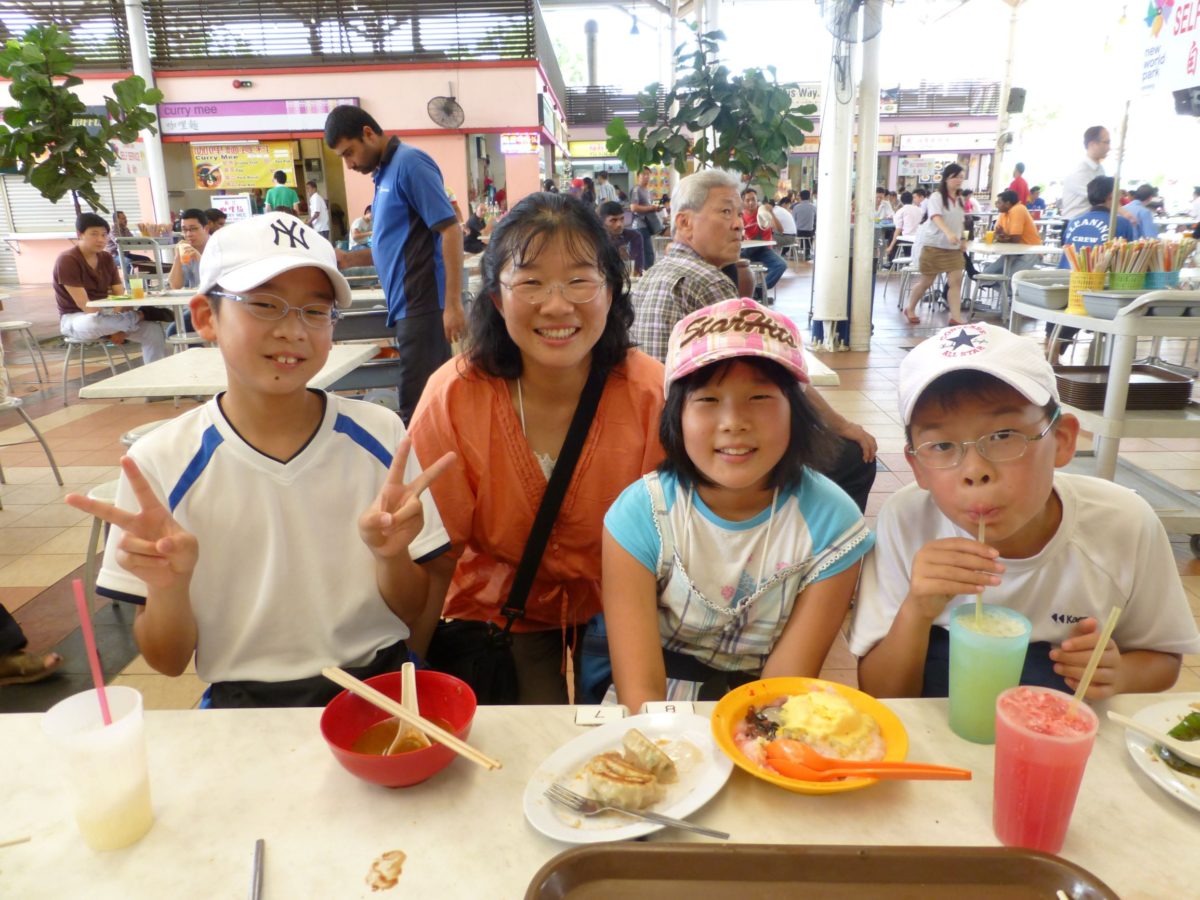When the 3/11 earthquake-tsunami disaster and subsequent Fukushima nuclear disaster happened in 2011, I was living in Kawamata Town, Fukushima.
Kawamata is a small, beautiful valley, surrounded by Abukuma Mountains. The town center is spacy and gently-sloping. There was no shopping mall or cinema, but just a few supermarkets and local businesses. Silk is the local specialty. There are lots of large second-story farm houses for breeding silkworms and shiny white plaster wall warehouses for storing silk products. Many old people were growing vegetables for their grandchildren and family. I liked watching beautiful red, orange, and yellow colored leaves in fall, and snow covered mountains in winter. The air was clean and fresh. People were kind and polite, and spoke in a quiet, calm voice, yet friendly to newcomers like us. They held traditional festivals and many local events which I and my children enjoyed much. It was a very comfortable place to live, and I believed it was my last place, until the 3/11 disaster happened.
I was not born in Kawamata. I was born in Sapporo, Hokkaido, which is an island located in the far north of Japan, close to Russia. My father is an avalanche researcher/scholar, and before I was born my mother was a librarian. My father got an opportunity to study at the National Avalanche Research Institute in Davos, Switzerland when I was 1 year old, so my family lived in Switzerland for 2 years. When I was 3, we moved back to Sapporo. Both Davos and Sapporo are snowy places, and I loved playing in snow. Skiing, sledding, fighting snow ball matches, making snow angels, licking icicles, and building snow igloos.
In summer, I played in a park, in my yard, or in a White birch bush around my house.
When I was 8, we moved to Chiba, an eastern suburb of Tokyo. Oh, I missed snow and the woods so much.
When I was 28, I became married to a long distance truck driver, and lived in his house in Nara, a western suburb of Osaka. There was no snow or woods there just like in Chiba. I was craving a country life so much.
When I was 36, we had an opportunity presented to us. A big construction company planned to build a 5-story condominium in front of our house, and the company offered us a good price to buy our house. My husband did not want to move because Nara was his hometown. But as the condominium will block our view and the sunshine completely, he hesitantly followed my wishes. I searched a lot of places for relocation. I wanted to live in my mother’s parents’ farm house which has been vacant since my grandparents passed away years ago. The house is in Wakayama, next to Nara, so my husband felt comfortable to move. But my mother was strongly opposed to the plan. She was a very obsessive, controlling person, so I guess she did not want to let us onto her property. So, I searched again, looking for a snowy place. At last, I found the Yamanami Natural Farming and Self-Sustaining School in Kawamata, Fukushima. They had a one-year internship, and it snows there like Hokkaido, but not as cold as Hokkaido. All the conditions seemed very attractive to me.
It was a cold day on February 15th, 2006. My Husband, my 6 year old son, my 5 year old son, and my 3 year old daughter and I arrived at Fukushima. The new life was interesting and inspiring. I enjoyed learning natural farming, how to make preserved food, to raise chickens, and to forage for edible wild plants. Natural Farming was established by Masanobu Fukuoka and the philosophy is “No plowing, no chemicals, no fertilizer, and harmonious with weeds”, which was very interesting but challenging.
Unfortunately, my husband couldn’t enjoy the country life, he got bored and called my cell phone every 10 minutes when I was working in the vegetable field. He was always grumpy and it drove me crazy so as a result, we got divorced next year.
I needed to earn a living to be able to raise my 3 children by myself. I held a variety of jobs from tutoring, to working as a kitchen worker, to being a truck driver. Finally I worked on a local pig farm because it was a better paying job. It was a physically demanding job, and I got in really great shape and very muscular. I worked so hard and dedicated myself to my children, so I was always tired. But I was young and energetic. I was enjoying the busy life.
I and my children joined “Oyako Gekijo,” a theater club, and made good friends. My children played volleyball, so I drove them for practices and games 5 times a week after school or in weekends. Also I belonged to a picture book club to read aloud children’s books in front of students at kindergartens and primary schools. I was very good at reading and performing “Kamishibai”, a paper theater play.
I made many friends with parents of my children’s classmates, and every time I walked in the town, I ran into some of them and had a chat.
My children also made many friends at school, at daycare, and in the valley ball club.
My parents were away from Fukushima, so when my children got sick, emergency supporters from a private charity organization helped me a lot. I could not have kept my job without their help. Fukushima became my second hometown. I had never imagined to leave there. It was surreal and devastating.
